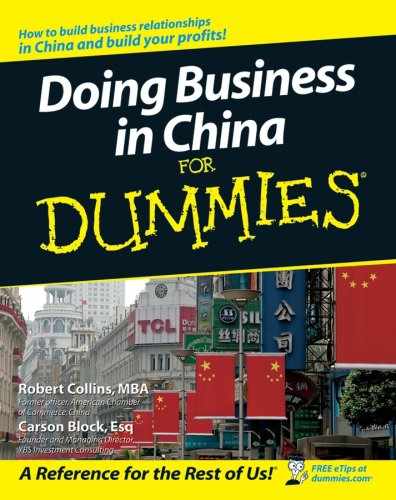Introducing China’s Currency: The Tricky RMB
China’s currency has two names: the renminbi (RMB) (run-mean-bee) and the yuan (yu-en). Renminbi literally means the people’s currency. As this section explains, the RMB is quite unlike most other currencies you’re familiar with. It’s considered a soft currency, which means that it isn’t traded on world exchanges. China places a lot of controls on trading the RMB, and they affect almost every aspect of your business. (For information on cash, including its denominations and appearance, see Chapter 5.)
The Hong Kong dollarHong Kong’s currency is the Hong Kong dollar (HKD). Even though China has assumed sovereignty over Hong Kong, Hong Kong maintains separate control over its currency. In contrast to the RMB, the HKD is a hard currency, which means that it can be exchanged anywhere in the world. The Hong Kong Monetary Authority (HKMA) manages the currency. For many years, the HKMA has kept the HKD pegged to the U.S. dollar. In other words, the HKMA ensures that the HKD maintains a steady value against the USD, which is about 7.7 to 7.8 HKD to 1 USD. |
What you need to know about the RMB
One of the crucial aspects to doing business in China is understanding China’s system for converting money. The RMB is only a semi-convertible currency — that is, you can convert the RMB to U.S. dollars, euros, or other foreign currencies only under certain circumstances.
In the system you’re probably used to, a person in the U.S. who wants to get euros goes to the bank, which then takes the customer’s dollars and gives him or her euros. The next step is the key: The bank sends the dollars to Europe, where it can exchange them to replace the euros it gave the customer. If the bank couldn’t send out the dollars, it wouldn’t be able to exchange the money for the customer. The customer has money, the bank has money, everything’s done. These days, bank exchanges are electronic, but the principle is the same.
In China, you find a number of restrictions on sending RMB out of the country. Under these restrictions, banks (as well as other businesses and individuals) can’t send RMB overseas for many types of transactions. You even see some limitations on receiving foreign currency from overseas in China. All these restrictions make having a worldwide market for RMB impossible. Therefore, the world market doesn’t set the RMB exchange rates. The People’s Bank of China (PBOC), which is China’s government-run central bank, is in charge of managing the RMB. The PBOC sets the RMB’s exchange rates, or peg. (You can find the current exchange rates into RMB [Chinese yuan] at finance.yahoo.com/currency.) Because the RMB isn’t traded in world markets, exchanging RMB outside of China, except in Hong Kong, is hard.
China limits the flow of the RMB because it wants money flowing into the country to fund investments. Allowing money to freely flow out may reduce the amount of money available to fund investment in China. Also, the government still likes to maintain some control over the economy, and setting the exchange rate is a powerful way to do so. If China increases (appreciates) the value of the RMB against other currencies, then its exports become more expensive to foreign buyers but imports become cheaper in China. If China decreases (depreciates) the value of the RMB, then its exports become cheaper overseas but imports to China become more expensive.
|
What RMB exchange controls mean for your business
In a nutshell, the exchange controls relating to RMB mean more red tape for you. Your company is going to have to open multiple bank accounts to deal with different types of foreign currency transactions (which we talk about in “Opening All the Necessary Accounts”). The controls may affect how you finance your company (see “Financing Your Business”). And the exchange controls also make getting money out of China more complicated for foreign shareholders and lenders (see the later section “Getting Your Money Out of China). But as we discuss, you do have ways to structure your company to make these tasks easier.

